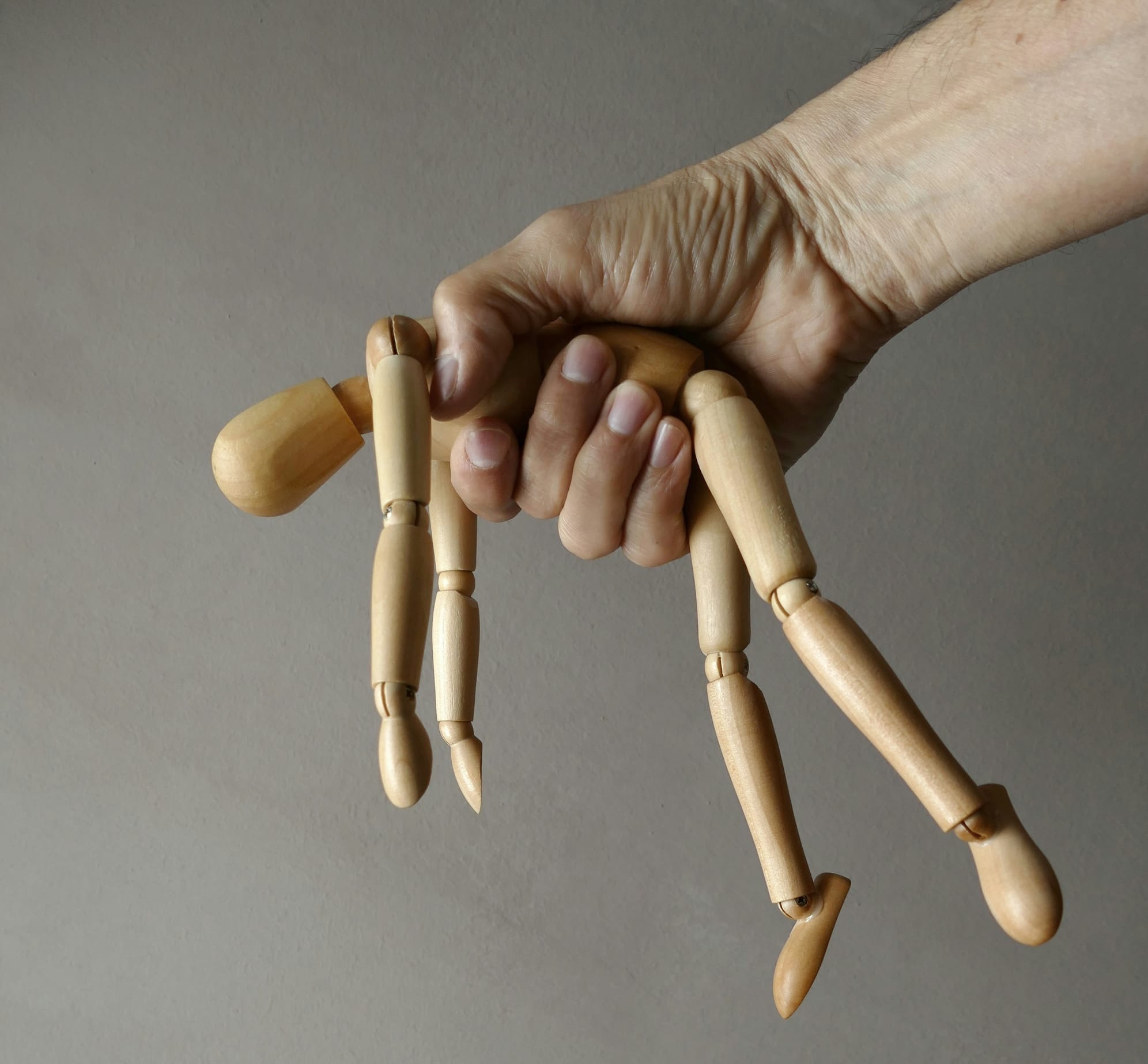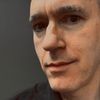Why People Prefer Certainty over Truth
Cherry-picking information that matches our beliefs keeps us and others from finding the truth. So why do we do it? Here are 3 reasons.

In Differentiating Truth, Knowledge and Belief we saw how individuals and institutions frequently cherry-pick information that supports their pre-existing beliefs whilst ignoring or dismissing anything (or anyone) that challenges them.
We also saw how beliefs serve as temporary placeholders for the information we currently lack in our ongoing quest for truth, which means it’s often easy to mistake beliefs for actual knowledge. Such confusion happens in every area of society, including science and healthcare, politics and economics, education and academia, religion and philosophy—if fact, any area of life where it’s impossible to know everything in its entirety.
This leads us to a troubling conclusion:
Instead of our beliefs leading us towards truth when we lack sufficient information, our beliefs may prevent us from seeking and finding the truth.
OK, so what? Sometimes we might get things wrong once in a while; occasionally they might negatively affect our life choices. No big deal. It’s our choice, right? No harm done.
- But what if our beliefs cause us to act in a way that negatively affects others?
- What if we have disproportionate power or influence over others?
Now our cherry-picking becomes a more serious affair altogether.

Power, Influence and Beliefs
When cherry-picking gets combined with power over the lives and opportunities of others – for example, if we’re in a position of leadership, influence, regulation or control – not only might we keep ourselves from the truth, but we could be keeping others from finding it too. As we’ve noted elsewhere, human beings have a natural tendency to outsource their quest for truth to others, and we could be the ones others are outsourcing it to.
Finding ourselves in any position of power or influence therefore increases the likelihood that our own beliefs will automatically be adopted by others, especially if they are dependent on us in some way.
This is as true for parents, teachers and employers as it is for governments, regulators, technology platforms, banking institutions, media, or monopolies.
Have you become dangerous?
It therefore follows that:
- If you confuse your own beliefs for truth…
- If you are convinced that you are right…
- If you believe you have a responsibility to bring that ‘truth’ to others…
…you have become dangerous.
Because not only are you likely to prevent others from finding the truth for themselves, but you may be so convinced you are “right” that—given the right set of circumstances—you would be ready to penalise any dependant who does not align with your own beliefs. The more power you have over what someone can and cannot do, the more dangerous you have become.
It is therefore incumbent on all of us—and especially if we are in a position of influence or power—to learn to differentiate belief from truth. But more than this, we need to understand why people are more likely to cherry-pick the information that matches what they already believe so we learn to recognise when we’re most at risk.
So in this article we’ll examine the 3 main reasons why human beings seek out information that supports their pre-existing beliefs before finishing up by offering the antidote.

Reason 1: Our need for certainty is stronger than our need for truth
The main reason we favour information that supports our pre-existing beliefs comes back to something we introduced in What is Truth? That our need for truth stems from a need for certainty. For many people, therefore, certainty is the goal; truth (or rather, what they believe is truth) is merely the means to get there.
This makes sense intuitively: we need certainty now, because it’s certainty that allows us to get on with our lives—to take action, rather than hiding under some proverbial rock.
By comparison, it takes time and energy to gather all the information we would need in order to be certain that we actually know the truth… and have exhausted every other possibility. This is especially true when a topic is complex.
So it’s simply more practical for us, as finite humans, to opt for certainty over truth—which means belief automatically takes precedence over knowledge.
Stepping out into the unknown
After all, it’s difficult to gather new information if we’re curled up under a rock because we don’t know what’s happening ‘out there’. So we surely have to be certain enough to venture out in order to gather the information necessary to confirm that our ‘risky’ venturing out wasn’t a mistake! Those first steps, then, will be based (at least partially) on belief rather than knowledge.
It’s much more practical to inch our way forward, gathering new information as we go, testing it against our current beliefs… and adding to our certainty incrementally. As we gain confidence with the extra information, we can then inch further forward, gathering more and more new information as we go, testing the feedback from the universe against our now more certain beliefs.

Step by step, moving forward…
This incremental approach means we get to modify our beliefs incrementally too—if we find that we need to do. Gradually updating our beliefs based on incremental experience and feedback from the universe is far less psychologically and emotionally taxing than taking a huge step into the unknown and finding we were wrong…
If we want to gather the information we need to know the truth, we first have to act as if our beliefs are the truth!
So there’s a paradoxical circle here, isn’t there?
- We cannot know the truth unless we have sufficient information…
- But to gather sufficient information, we have to have certainty…
- But to have certainty, we have to know the truth…
…which brings us right back to step 1!
Every step depends on the step before it, which means that if we were to wait for knowledge before we could move forward, we would never be able to get on with our lives!
Hence:
- Belief often gets substituted for knowledge.
- Belief often behaves as if it’s knowledge.
- It’s not always easy to recognise the difference.

Reason 2: We grow attached to our beliefs
The second reason we tend to ignore information that risks casting doubt on our pre-existing beliefs is that we grow emotionally and psychologically attached to our beliefs. The more effort and resources we invest into something—and the more risks we take on account of those beliefs—the more emotionally invested in them we become.
The more someone acts on their beliefs, the more emotionally attached to their beliefs they become.
Nobody wants to think they wasted huge chunks of their time or money, or that they made sacrifices ‘all for nothing’, or that they staked their reputation on a belief that may have been wrong. None of that helps with a person’s self- or social identity.
So there’s a heady cocktail of sunk costs, loss of face, cognitive dissonance, and loss aversion that someone must imbibe before they can let go of a belief they have acted on… even if the only act they carried out was to tell others that it was what they believed. Who likes to admit they might have been wrong, or have others say: “I told you so!”?
The stronger someone’s belief, the more they will have acted on it, which means the more they will have invested. And who wants to deal with that level of emotional and psychological loss?

Reason 3: Our beliefs become our identity
The third and final reason for ignoring information that casts doubt on our pre-existing beliefs is that…
- The more we act on our beliefs
- The more we feel because of those beliefs
- The more we sacrifice on account of those beliefs
…the more our lives become inseparable from those beliefs.
Our beliefs become our identity, our raison d’être. They define what makes us ‘us’, separating ‘self’ from ‘other’:
We touched on some of the reasons for this division in Bubbles of Certainty – Part 2. If what we believe becomes inseparable from what makes us ‘us’, then attacking our beliefs is a direct attack on us. We almost come to expect this: “If anyone’s not for us, they’re against us.”
Avoiding the difficult questions
But it’s one thing if someone else attacks our beliefs, but if we start challenging our own beliefs, then aren’t we attacking ourselves?
If so, then:
- Who are we without our beliefs?
- Who are we without our ‘truth’?
- Who are we without our certainty?
- Without our beliefs, how are we supposed to act?
- What is our identity (our raison d’être) without our beliefs?
These are scary questions to ask ourselves– whether as an individual, a group, an institution, a nation, or even a species. When we consider some of the most challenging questions we face in society today, many of them come down to this relationship between a pre-existing set of beliefs about ourselves and who we are in relation to others.
Bursting our bubbles of certainty?
It doesn’t necessarily mean our pre-existing beliefs are wrong. As we saw in Differentiating Truth, Knowledge and Belief, it’s possible to possess the truth without actually knowing it.
But if our belief is challenged, and we don’t have the personal knowledge to back up why we believe what we believe, then it leaves us excruciatingly vulnerable to uncertainty. And as we saw above, uncertainty undermines our capacity to act; to get on with our lives.
BONUS: Gender, Nationality and A.I. — 3 examples where challenging belief challenges identity
Let’s consider three examples where pre-existing beliefs have been more recently challenged, resulting in potential implications for identity. We don’t need to consider here the ‘rights’ or ‘wrongs’ of the challenges themselves. We simply want to illustrate this relationship between pre-existing beliefs and identity, and the impact on certainty.
- Gender
- Pre-existing beliefs regarding the differences between male and female have been challenged by various social movements over the years, including feminism (e.g. gender roles), queer theory (e.g. what is normal), and transgenderism (e.g. what is gender).
- What was once considered ‘common knowledge’ about gender by a large majority of society found itself ill-equipped to counteract the questioning of their traditional ideas and values, suggesting that the majority may have been relying (at least to some extent) on long-held beliefs rather than justifiable knowledge.
- In recent years, this questioning has culminated in some asking (both seriously and satirically) “What is a woman?”, a question that can expose the relationship of identity (“what it means to be a woman”) to the answerer’s underlying beliefs.
- Nationhood and Nationality
- “National identity” (as might be epitomised by the ‘right’ to hold a particular nation’s passport) requires the concept of nationhood, which itself is tied up with notions of national borders and the idea that a nation can use force to maintain its own borders.
- Though some individuals might have lived on the same piece of land for generations, that land may find itself included within the borders of different nations at different points in history. Consequently, such individuals might see themselves as having a different “national identity” to the “nation” that now encompasses the land they live on.
- The encompassing nation may believe they have a right to exercise force to maintain their own borders (to protect their own “national identity”), whilst the individuals may see the encompassing nation as an ‘occupying force’, antithetical to their own “national identity”.
- Human Uniqueness and Artificial Intelligence (A.I.)
- Human beings have long proclaimed superiority compared to computers in specific areas associated with intelligence, such as lateral thinking and creativity.
- Many professionals that rely on creativity and novelty (e.g. writers, musicians, artists) to make their living believed their own professions were safe from replacement by technology, even as other industries were incrementally taken over by ‘number-crunching’ computing power.
- Advances in machine learning, however, have demonstrated that computers are capable of at least simulating such creativity, often more flexibly and cheaply than human beings, evoking fears of A.I. taking jobs.
- But more fundamentally, more people are beginning to question “what makes us human”, and whether our species holds any special value or purpose in the universe given that our “uniqueness” is not as self-evident as it once was. Some even question whether the universe might be better off without the human race—a sure sign that belief in our own identity as a species is perceived as under threat.
These three examples help to illustrate just how tightly integrated beliefs and identity are. Once this relationship is threatened, certainty evaporates. For most of us, therefore, it is simply safer to cling to our pre-existing beliefs, together with the identities we’ve built upon them—even if they’re wrong.

An antidote to cherry-picking?
We’ve seen in this article three of the main reasons why people cherry-pick:
- The need for certainty, even at the expense of truth.
- Emotional and psychological investment in our beliefs.
- The connection of our beliefs with our self- and social identities.
We’ve also seen how our pre-existing beliefs can keep us (and others) from seeking and finding truth.
But is there an antidote?
Yes. It’s to be more emotionally and psychologically attached to knowing truth than we are to our own beliefs about what is truth.
But how do we do this? And does it even matter? That’s what we’ll be looking at in the next articles.

